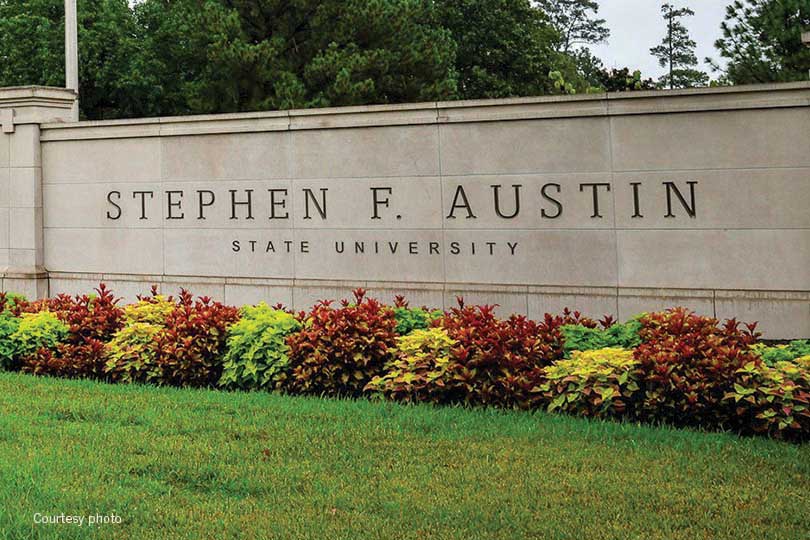By Justin Walker
Communications Specialist
Forestry has long been a staple of Stephen F. Austin State University’s (SFA) curriculum, but a focus on horticulture over the past few years has the program flourishing.
Recent expansion to horticulture facilities has allowed the program to offer more high-impact learning opportunities to students, Dr. Jared Barnes, assistant professor of horticulture at SFA, said.
“A few things we are working on this fall in agriculture is we are going to be having students growing a ton of plants,” Barnes said in an interview with the Texas Farm Bureau Radio Network. “Our students will be growing crops like pansies, erysimum and lunaria.”
The horticulture program will offer more hands-on experiences going forward due to the industry’s high demand, Barnes said.
“People want to hire students who are ready to grow things,” he said. “We are really trying to get students growing out there in the greenhouse and nursery pad and teach them that hands-on experience. I think that is really great.”
There will also be a focus on perennial movements, a designed plant community concept, Barnes said, which targets students interested in sustainability practices.
Students are interested in seeing plants and landscape concepts that last, he noted.
“Research shows the average length of a landscape is seven years,” Barnes said. “So how can we make landscapes last longer? We are trying to teach students about cutting-edge, research-based, nature-inspired planting techniques they can be using once they go out in the field.”
The program expansion benefits more than just the current students. It’s also an opportunity to grow the program, Barnes said.
SFA’s Arthur Temple College of Forestry and Agriculture has seen a steady increase in enrollment.
“I think that is because students are interested in working outside,” he said. “They want to do hands-on activities. Part of that is because I think a lot of high school programs have great horticulture and ag programs.”
There are 300-400 students in SFA’s Department of Agriculture, Barnes said. Horticulture is just one of several programs within the department, and it has seen significant growth.
“When I started a couple years ago, we were at 19 students,” he said. “Within two years, we were up to 34, and we are still hovering around that 30 mark now. So, we are doing a good job with recruiting.”
Students are also coming from diverse backgrounds, Barnes said. Both rural and urban Texas are represented in the program, but there are also several international students in the mix.
“We have a couple of grad students right now from Pakistan,” he said. “We’ve even had students from Granada and China.”
Barnes believes having students from all walks of life is beneficial to everyone.
“Having a lot of people from a lot of different areas really helps them get a lot of experience,” he said.

